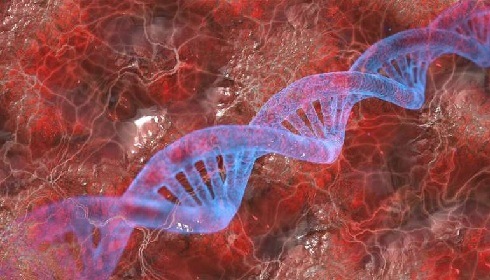
Starving cancer cells of arginine can make them vulnerable to the body’s immune system: Study
Starving the cancerous tumour cells of amino acid arginine, an essential nutrient for cancer cells could potentially render tumours more vulnerable to the body’s natural immune response, researchers of a new study said.
The findings of the study, published in Science Advances researchers from Prof Sohail Tavazoie’s Laboratory of Systems Cancer Biology at Rockefeller University found that in a variety of human cancers, this amino acid becomes limited, prompting these cells to seek a clever genetic workaround, when arginine levels drop, they manipulate proteins at their disposal to take up arginine and other amino acids more efficiently; and remarkably, to keep growing they induce mutations that reduce their reliance on it.
“It is like if you had a Lego set, and you are trying to build a fancy model plane, and you run out of the right bricks,” says the first author of the study, Dennis Hsu, a former member of Tavazoie’s lab and now a physician-scientist at UPMC Hillman Cancer Centre in Pittsburgh.
“The only way to still build the plane would be if you had altered blueprints that don’t require the missing bricks,” he adds.
The researchers said that they discovered the connection between arginine and cancers as part of a larger study on codons, triplets of DNA bases that each contain the recipe for producing a single amino acid.
| - Cancer care should be covered under health insurance: Oncologists |
| - Cases of liver cancer rising in India |
| - World Cancer Day: Excessive exposure to ultraviolet light cancer cause eye cancer |
Hsu documented thousands of instances of codon mutations while combing through the Cancer Genome Atlas, but one that stood out among all cancers was arginine codons, which were lost far more than they should have been during mutations. The most dramatic deficiency was found in stomach and colorectal cancers.
“This was a very surprising discovery that we were not expecting,” says Prof Tavazoie,
However, the researchers said that they do not know how the initial arginine drops came about. “We think that some cancers develop under low-arginine conditions and carry this history in their DNA,” says Hsu.
During their research, the scientists found that when they put cancer cells through multiple rounds of arginine starvation, the cancerous cells began mutating as they tried different ways to secure access to a renewed supply of the amino acid.
Linking a specific nutrient to a specific DNA change through this sort of so-called directed evolution “had not been reported before to our knowledge,” Tavazoie says.
Stating that the findings have potential implications for immunotherapy, Hsu says, “By starving a cancer cell, perhaps you can promote the gain of new mutations that can then be recognised by the immune system.” Hsu says.